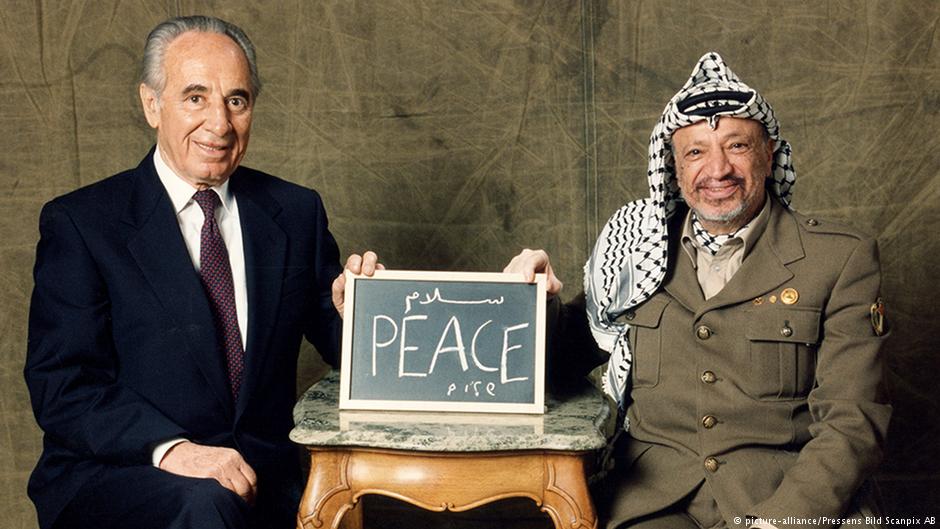3 Jun 2025
Why the Houthis Insist on Attacking Israel?
The Houthi armed group has been launching missile and drone attacks on Israel since the start of the Hamas-Israel war in October 2023. While these actions have been undertaken to show solidarity with Gaza and the Palestinian cause, the Houthi utilised these attacks to increase its popularity in Yemen. Moreover, the Houthi group, which is mainly supported by Iran, used these attacks to prove that it is capable militarily of engaging with foreign powers, hence delivering a message to the Aden-based legitimate government and its Gulf allies that it is militarily ready to engage with them.
18 Feb 2025
The New Frontier: West Bank is the New Gaza
In recent months, the West Bank has witnessed rising violence. The timing in which the West Bank is witnessing escalation is not a coincidence, it is connected to the ceasefire in Gaza. While right-wing elements refuse the ceasefire deal, it is generally argued that Israeli Prime Minister Benjamin Netanyahu has to appease those elements in his coalition. Netanyahu who is believed to have been pressured to accept the deal, does not find any alternative to satisfy right wingers in his coalition other than shifting the war to the West Bank. While this understanding is not entirely false, it is suggested that recent events in the West Bank are part of Israel’s expansionist plan aiming at imposing Israeli sovereignty on the territory. Using legal and political manoeuvres, Israel aims to turn the West Bank into another Gaza which results in broader regional implications.
6 Feb 2025
Will Israel Suceed in Dissolving UNRWA During Trump’s Second Term?
In a significant escalatory move, Israel’s Ambassador to the United Nations, Danny Danon, has notified the UN Secretary-General in writing that UNRWA must cease its operations and vacate its premises by January 30, 2025. This ultimatum follows Israel’s enactment of a law last October banning the agency’s activities within its territory, including occupied East Jerusalem. The decision is rooted in Israel’s allegations that UNRWA has been infiltrated by Hamas, with claims that some of its employees were involved in the Oct. 7, 2023, attacks.
This paper examines the evolving and contentious relationship between Israel and UNRWA. It also explores potential U.S. intentions to dismantle the agency, particularly in light of Donald Trump’s return to power and his recent remarks regarding the displacement of Gaza’s population and the repercussions of this ban.
5 Oct 2024
A Year of War on Gaza: Who Loses and Who Gains?
The Israel-Hamas War has now entered its second year following the unexpected assault by Palestinian factions on Israel on October 7, 2023. This sudden attack disrupted Israel’s long-held sense of security, undermining public confidence in both the Israeli military and its intelligence apparatus. In response to the incursion, the Israeli military launched a devastating offensive on Gaza, resulting in over 41,500 fatalities and leaving 96,000 others wounded Moreover, a punitive blockade has severely cut off essential supplies of food, energy, water, and medicine, crippling Gaza’s already fragile healthcare system. The blockade, coupled with ongoing military strikes, has devastated key infrastructure, housing, the economy, agricultural lands, and fishing fleets. This has pushed nearly half a million people into a state of food insecurity.
Israel has consistently forced Gaza’s residents to relocate into increasingly confined areas, with the number of displaced individuals now reaching nearly 1.9 million. The widespread devastation has led the United Nations to issue repeated warnings, cautioning that Israel’s actions are rendering Gaza uninhabitable.
After a year of war, Israel has failed to achieve its primary objectives. Hamas remains intact, and the prisoners held by its factions have not been released. Instead, the war has widened, with violence escalating beyond Gaza and into the West Bank, while tensions between Israel and Iran, along with its regional proxies, have intensified. This escalation has pushed the Middle East to the brink of a broader confrontation, potentially setting the stage for a full-scale war between Israel, Iran, and its respective proxies. As hopes for a ceasefire and prisoner exchange dwindle, pressing questions now emerge: Who stands to lose and who will benefit from this protracted war? When and how will Israel’s war conclude, and what will be left in its wake?
This analysis highlights the gains and losses of the most important parties to the conflict as follows:
10 Sep 2024
The Silent Rise: How China is Changing the Middle East
China has mediated a Palestinian reconciliation dialogue in Beijing, and has succeeded in bridging the rift between Saudi Arabia and Iran. These steps indicate a change in China's approach to the Middle East, as it has become an active player in the region by expanding its policies to include political and strategic considerations, in addition to its energy interests. Its "non-interventionist" policy has attracted many countries in the region, which see their growing relations with Beijing as a means of diversification. However, China's increasing involvement may pose a threat to US interests in the region. As Washington has increasingly focused on the Indo-Pacific region, China has emerged as an active player in the Middle East, reshaping regional security dynamics, signing strategic partnerships and memoranda of understanding for its economic activities with most Middle Eastern countries, and strengthening its ties with various regional organizations over the past two decades. Recent Chinese diplomatic initiatives demonstrate Beijing’s deep investment in further developing relations with Middle Eastern countries, with Beijing hosting the Arab-Chinese Summit and the Gulf-China Summit, demonstrating its commitment to strengthening strategic partnerships among the region’s countries and promoting economic development beyond its traditional energy interests. China’s growing engagement in the Middle East is seen as a significant factor shaping the region’s geopolitical landscape and has significant implications for global politics. This raises the question: how China’s methods diverge from those of the United States (U.S.) in the region?
5 Sep 2024
El-Sisi’s Visit to Ankara: A Key Diplomatic Move During Unrest
In a move with significant political and economic implications, Egyptian President Abdel Fattah El-Sisi embarked on an official visit to Ankara Sept. 4, 2024. This highly anticipated visit comes months after Turkish President Recep Tayyip Erdogan's visit to Egypt earlier this year and his invitation to President El-Sisi to Ankara. The current visit, considered a turning point in Egyptian-Turkish relations, aims to strengthen bilateral cooperation and open new avenues for coordination on regional and international issues. After a decade of tension and estrangement in the relations between Egypt and Turkey.
The Egyptian President's visit to Turkey is of special importance, as it is the culmination of a long phase of discussions aimed at restoring relations between Egypt and Turkey to their normal course. The rounds of talks and meetings concluded with Erdogan's visit to Cairo last February, which witnessed the announcement of the revival of the High-Level Strategic Cooperation Council for relations between the two countries in its new form, where both leaders co-chair the first meeting of the Council. The meeting also involved a comprehensive review of the Egyptian-Turkish bilateral relations and discussions on potential steps to further enhance the Egyptian-Turkish cooperation.
This analysis highlights the motivations of this visit and its implications on regional and Turkish politics.
5 Feb 2024
Navigating the Two-State Solution: Balancing Possibility and Hope in the Palestinian Cause
The Palestinian-Israeli conflict stands as one of the world's most intricate and pressing issues, marked by enduring conflicts between Palestinians and Israelis, with potentially dire consequences that could escalate into a regional war. In 1993, both Yasser Arafat, leader of the Palestine Liberation Organisation, and Israeli Prime Minister Yitzhak Rabin embraced the two-state solution, leading to the signing of the Oslo Accords. The essence of these agreements aimed at establishing two states, one for Palestinians and the other for Israelis, as a pivotal step toward a conclusive resolution to the prolonged and costly conflict. Unfortunately, the intended implementation of these agreements faltered, resulting in failed efforts and the division of Palestinian society between Fatah in the West Bank and Hamas in the Gaza Strip. Instead of fostering confidence, Israeli positions hardened toward Palestinians, leading to a surge in settlements in the West Bank and east Jerusalem. Currently, approximately 700,000 Israelis reside on lands designated for the Palestinian State, contributing to a decline in both regional and global interest in the matter.
The Palestinian cause regained global prominence with the events of October 7, marking the end of a three-decade stagnation and a background role amid the Arab Spring and subsequent regional and global crises. The Israel-Hamas War raised international concerns about the potential escalation into a regional war. It heightened fears of derailing the Middle East peace process, particularly the "two-state solution." Israeli officials have recently declared that this option no longer exists, despite opposition and warnings from some of Tel Aviv's closest allies, notably Washington.
These indicators underscore the notion that stability in the Middle East hinges on a resolution to the Palestinian cause that aligns with the national aspirations of the Palestinian people. Consequently, discussions surrounding a two-state solution have resurfaced as the optimal proposal to end the conflict, serving as an alternative to the right-wing expansion and settlement policy on the West Bank. Such a policy could potentially isolate and compromise Israel's security while significantly depleting its military and financial resources. Hence, this analysis addresses the crucial question: Is the two-state solution still viable given the current circumstances?






